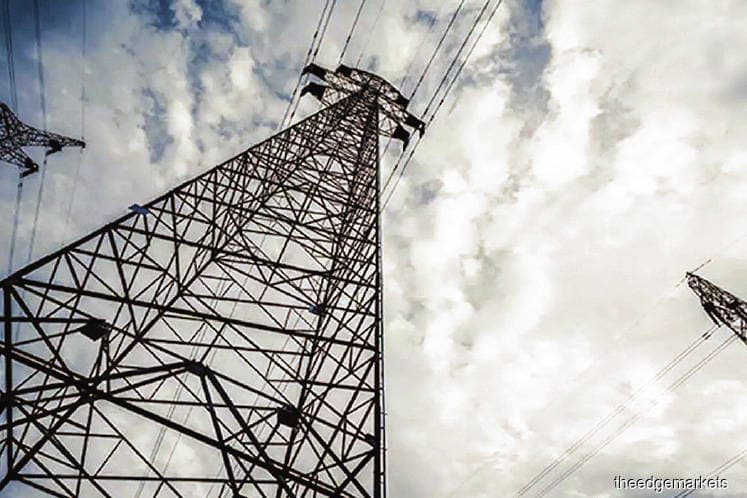
This article first appeared in The Edge Financial Daily on September 18, 2019
KUALA LUMPUR: Shares of Tenaga Nasional Bhd (TNB) slid 16 sen, or 1.16%, to RM13.62 yesterday in a knee-jerk reaction to the government’s announcement that it wants to eliminate the utility giant’s monopoly in the transmission and distribution (T&D) business and coal-sourcing as part of its power sector reform.
However, analysts believe the plan will not impact TNB’s bottomline in the next few years amid the gradual roll-out of the Malaysia Electricity Supply Industry Reform 2.0 (MESI 2.0) 2019-2025.
Under the 10-year masterplan, green energy buyers can sign third-party contracts with renewable energy (RE) plants and directly purchase a total of 100 mewawatt (MW) RE generating capacity through TNB’s grid by 1Q2020.
It is a prelude to the third-party access (TPA) over TNB’s T&D assets — a crown jewel which contributed over half of the group’s earnings in the last financial year, and which TNB opined will remain a structural monopoly.
An analyst with a local stockbroking firm said this came as a surprise.
“Of course, there are developed countries that allow TPA on regulated assets. But this is a very ambitious long-term plan that requires commitment [from the government],” the analyst said.
The government expects a TPA framework to be ready by end-2022 but declined to give a deadline for TPA to be available across all independent power producers (IPPs).
The 100MW cap is only around 0.56% of TNB’s maximum grid demand of 18,000MW recorded last year.
The impact on TNB’s earnings will depend on the network charges that it will impose to rent out that grid capacity.
Meanwhile, IPPs will be allowed to procure coal and fuel from other avenues beginning 2Q2021, instead of just TNB presently.
Coal represents just under 56% of the fuel mix in Peninsular Malaysia in 2018. But as TNB does not provide granular breakdown of its coal procurement business under 100%-owned subsidiary TNB Fuel Services Sdn Bhd, there is no clarity on how this removal of monopoly will impact its bottomline.
TNB did not immediately respond to questions on the renewable energy third-party contracts and its fuel procurement business.
From the consumer’s perspective, if the IPPs end up paying lower for smaller volume of coal, it would point to serious deficiencies to the current system.
“But does it make sense? As TNB procures for the whole country, the assumption is that it should have the economies of scale,” opined the local analyst.
On the other hand, opening up fuel sourcing is also good for TNB, as it will free up its working capital that is currently required to source coal for the entire power sector.
Single Buyer, which is ring-fenced under TNB, procures electricity from all IPPs and indirectly pays for the fuel costs. Instead of leaving the capital burden with the carved-out Single Buyer (thus the government), the idea is to disperse it to the respective IPPs instead.
This will also indirectly push the Energy Commission towards realising its key reform agenda of carving out the Single Buyer entity from TNB.
But there’s the question of whether IPPs are willing to take on the supply risk to earn slightly more, when it can do nothing and still enjoy the quality of steady earnings under the current arrangements.
After all, they can still let the entire industry pass down the excess fuel costs to end-users.
Questions to some IPPs went unanswered at press time.
The journey towards industry reform will be long, as Malaysia has one unique problem: the 25 long-term power purchase agreements (PPAs) that are slowing down the pace.
There is little incentive for those with long-term PPAs to auction both capacity and energy on the improved New Enhanced Dispatch Arrangement platform (NEDA+), as they already have locked in their earnings from both capacity and energy payments.
“In NEDA, the Energy Commission did not want to include capacity auction. It appears they are compromising (in NEDA+) but most IPPs have locked in long-term PPAs, so we can expect participation when they expire,” said the analyst.
Long-term risk looms for IPPs
But the long-term earnings risk looms for all IPPs. In a note yesterday, Hong Leong Investment Bank analyst Daniel Wong said the “power generation segment is subject to the future risks of pricing and take-up rate under the auction mechanism.”
He said the IPPs will inherit uncertainty in securing fuel supply and prices. There will subsequently be uncertainty in IPPs’ ability to sell electricity and in their selling prices under the auction mechanism, he added.
“TNB is the major power generator in Peninsular Malaysia with over 11,000MW capacity (45-50% over total power generation). Nevertheless, we do not anticipate immediate material earnings impact to TNB, given the gradual implementation of MESI 2.0,” said Wong.
One exception, he said, is YTL Power International Bhd, whose only local PPA is expiring in June 2021.
“YTL Power may be encouraged to participate in Malaysia’s future PPA structure as YTL Power has the advantage of its experience in Singapore via YTL PowerSeraya Pte Ltd,” he added.
YTL Power’s share price closed 1.5 sen lower at 73.5 sen yesterday. Two other listed IPPs traded unchanged — Mega First Corp Bhd (RM3.85) and Malakoff Corp Bhd (83.5 sen).